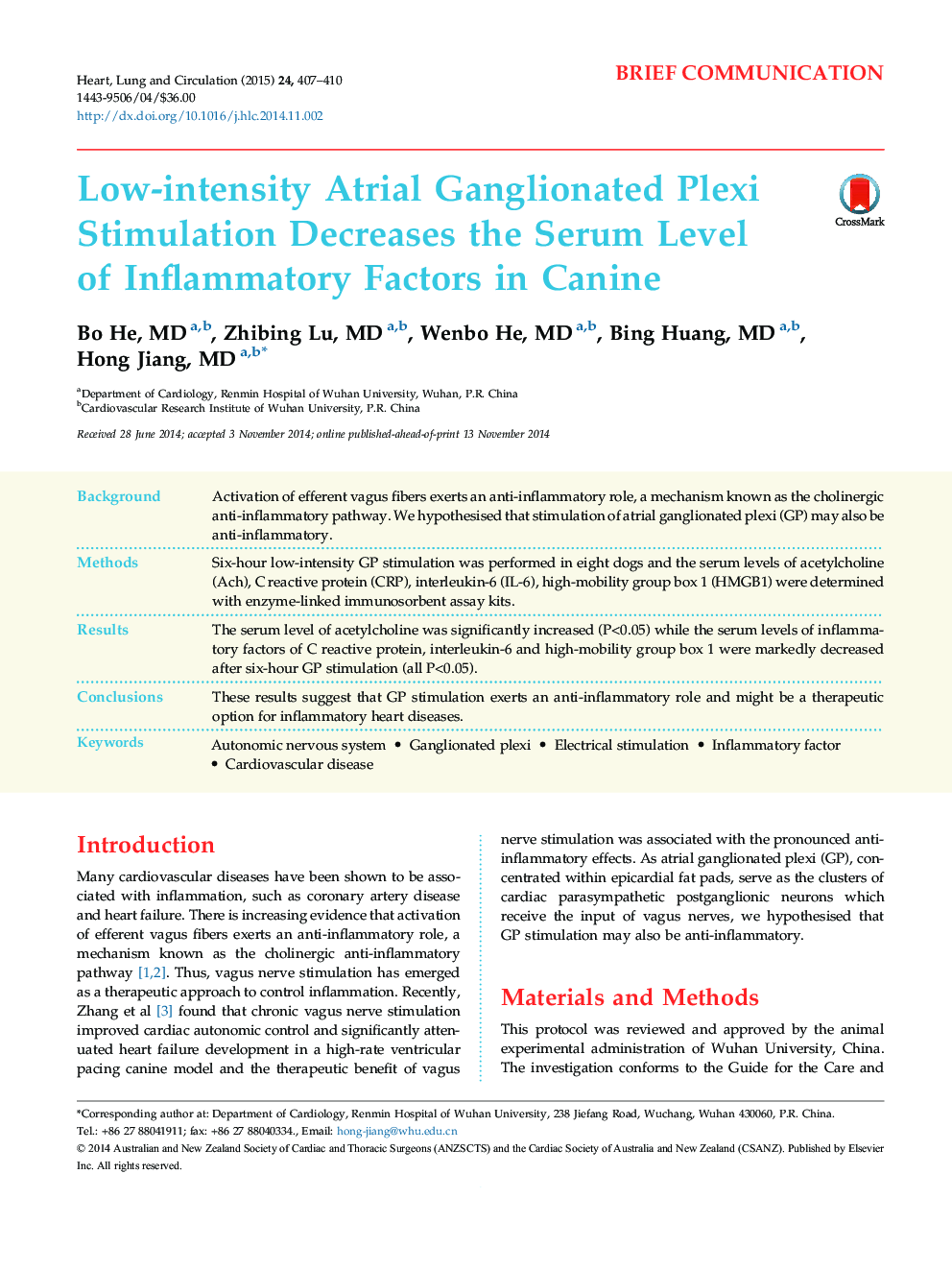| Article ID | Journal | Published Year | Pages | File Type |
|---|---|---|---|---|
| 2917595 | Heart, Lung and Circulation | 2015 | 4 Pages |
BackgroundActivation of efferent vagus fibers exerts an anti-inflammatory role, a mechanism known as the cholinergic anti-inflammatory pathway. We hypothesised that stimulation of atrial ganglionated plexi (GP) may also be anti-inflammatory.MethodsSix-hour low-intensity GP stimulation was performed in eight dogs and the serum levels of acetylcholine (Ach), C reactive protein (CRP), interleukin-6 (IL-6), high-mobility group box 1 (HMGB1) were determined with enzyme-linked immunosorbent assay kits.ResultsThe serum level of acetylcholine was significantly increased (P<0.05) while the serum levels of inflammatory factors of C reactive protein, interleukin-6 and high-mobility group box 1 were markedly decreased after six-hour GP stimulation (all P<0.05).ConclusionsThese results suggest that GP stimulation exerts an anti-inflammatory role and might be a therapeutic option for inflammatory heart diseases.
